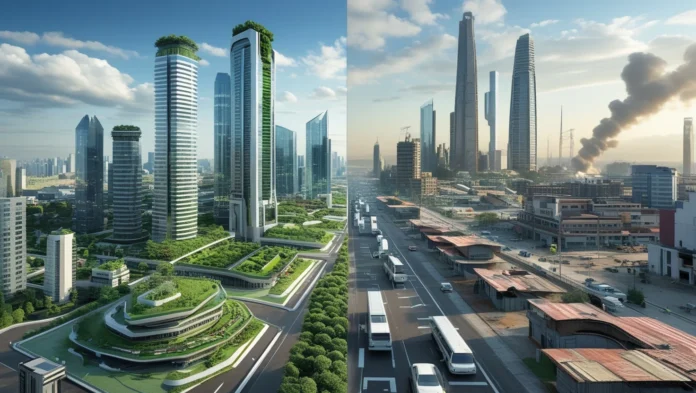Introduction
Urban Expansion has long been seen as a driver of economic progress, offering opportunities for growth, innovation, and improved living standards. However, the rapid expansion of cities also brings unintended consequences—many of which go unnoticed. While urban centers promise prosperity, they also pose challenges that could shape our future.
The Double-Edged Sword of Urban Growth
Just as Aladdin’s magic lamp granted unexpected wishes, cities provide both opportunities and burdens. They fuel economic growth, but they also create congestion. They offer modern conveniences, yet they contribute to pollution and environmental degradation. The question remains: Can cities continue to thrive without reaching a breaking point?
Unlike rural economies that rely on direct natural resources such as agriculture and mining, urban centers depend heavily on secondary services like commerce, governance, and infrastructure. This reliance intensifies the consumption of finite resources—land, water, energy, and materials—at an alarming rate. Without sustainable management, the repercussions could be irreversible.
1. Resource Depletion
Cities are major consumers of natural resources. The demand for land, water, and energy far exceeds that of rural areas, primarily due to urban lifestyles. High-rise buildings, industrial expansion, and increasing vehicle usage contribute to excessive energy consumption, while urban sprawl encroaches on agricultural lands and forests.
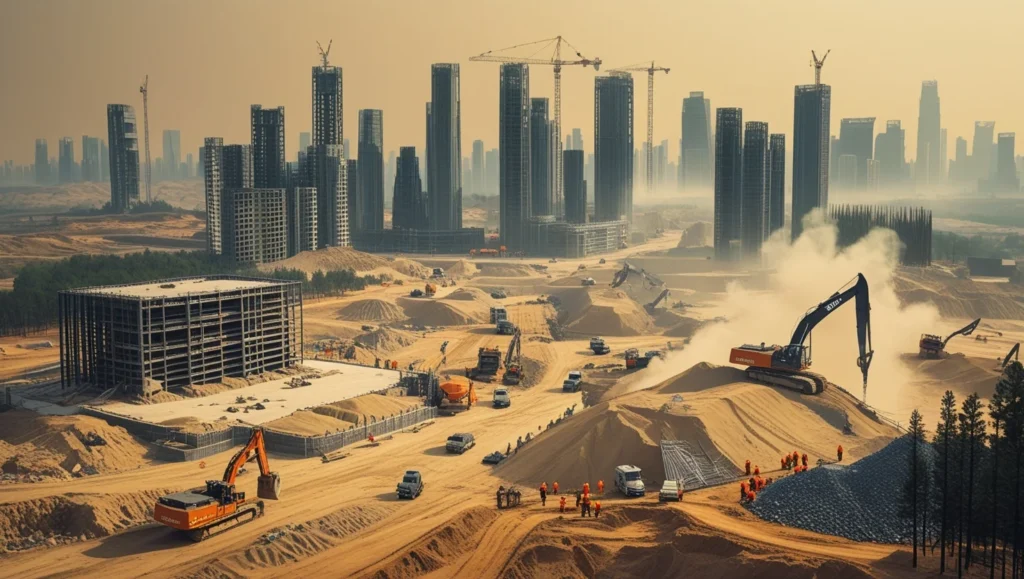
Key Insights:
- By 2050, India’s urban population is expected to reach 68%, intensifying pressure on resources.
- Expanding cities require massive amounts of sand, stone, and timber, leading to environmental degradation.
- The over-extraction of groundwater is causing severe water table depletion in major metropolitan areas.
2. Environmental Strain and Pollution
The more cities grow, the more they pollute. Air and water pollution, along with excessive waste generation, contribute to declining urban livability. Unchecked expansion often leads to deforestation and loss of biodiversity.
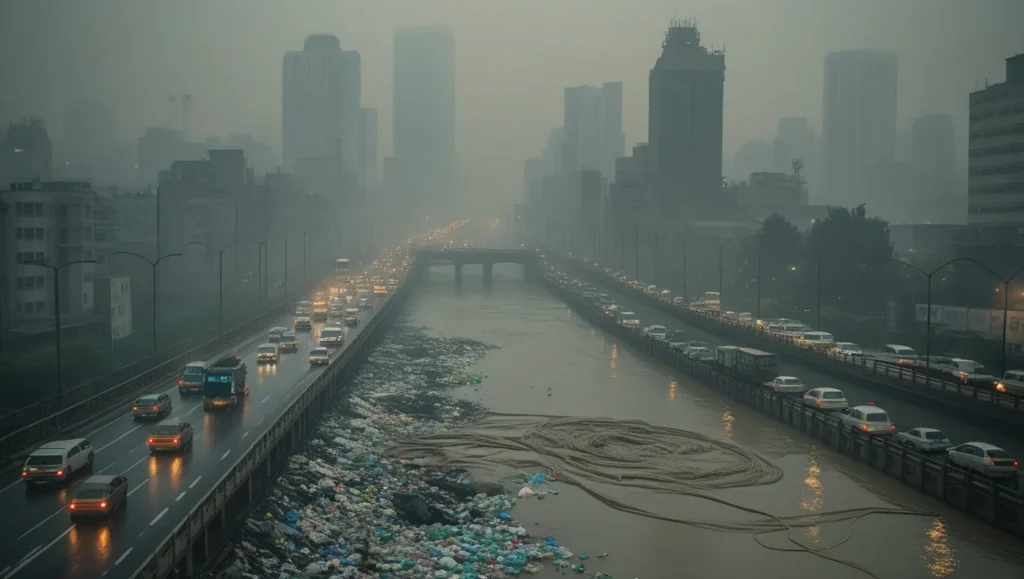
Key Insights:
- Urban transport alone contributes to 70% of total global CO2 emissions.
- Increased infrastructure projects result in more construction waste and deforestation.
- Rivers and lakes around urban areas are increasingly contaminated due to untreated industrial and domestic waste.
3. Rising Inequality and Social Divide
Urban expansion does not benefit all residents equally. While some thrive, others struggle with displacement, high living costs, and poor living conditions. The increasing cost of housing forces lower-income groups to relocate to the peripheries, creating a widening socio-economic gap.
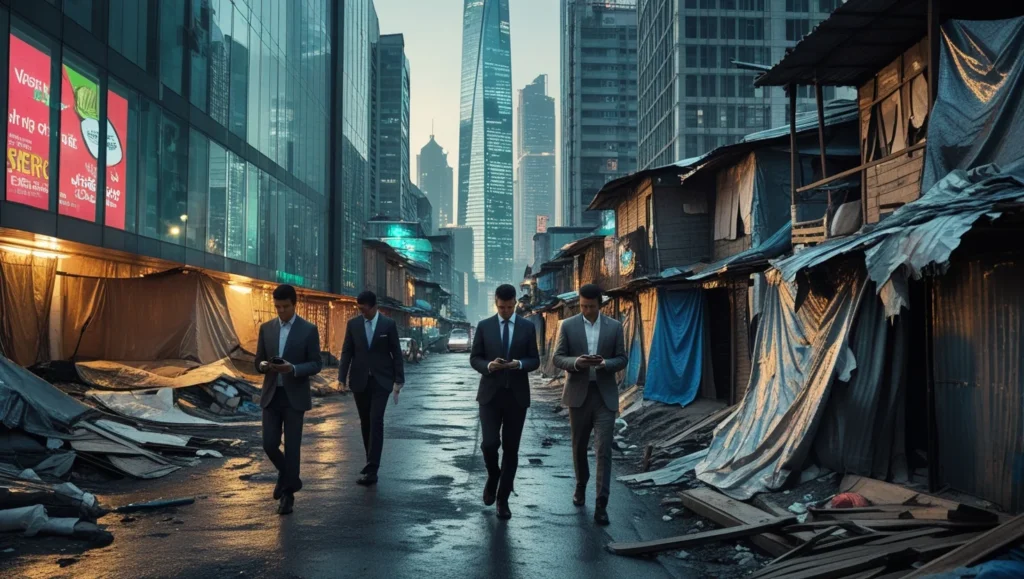
Key Insights:
- The rise of gated communities and luxury housing coexists with expanding slums.
- Urban poverty is expected to increase as employment opportunities become concentrated in select industries.
- Many lower-income populations lack access to basic healthcare, education, and sanitation in overcrowded urban centers.
4. Infrastructure Overload and Traffic Congestion
More people in cities mean increased demand for infrastructure. Governments struggle to keep up with growing needs for transportation, housing, and public services. The result? Overcrowded public transit, traffic congestion, and inefficiencies in governance.
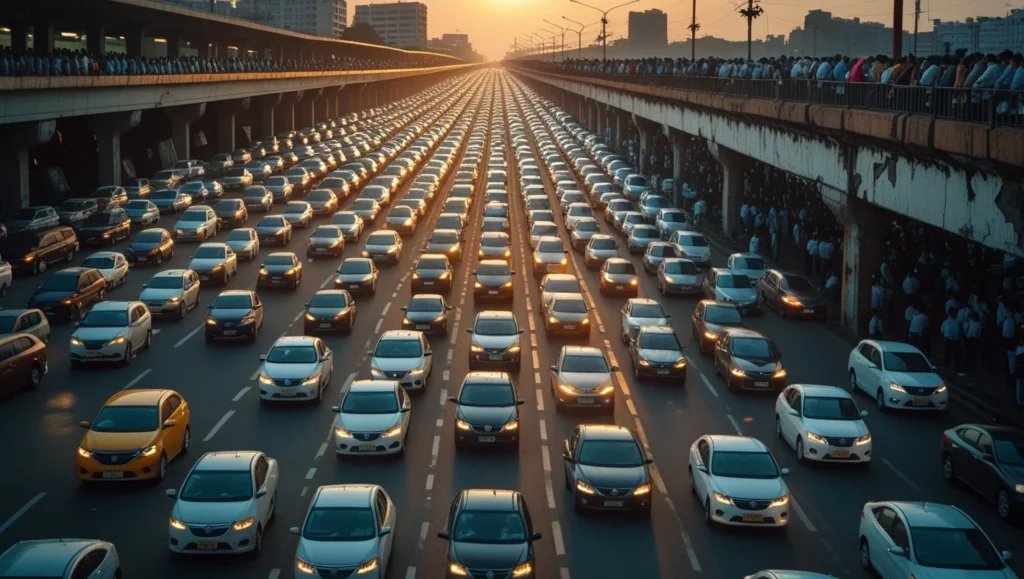
Key Insights:
- Bengaluru, Chennai, and Hyderabad face severe traffic congestion, affecting productivity and quality of life.
- Infrastructure projects create jobs but also encourage more urban migration, perpetuating the cycle of expansion.
- Unregulated construction leads to poor urban planning, worsening congestion and pollution.
5. Sustainability Challenges and Climate Risks
Urban expansion is linked to climate risks, including rising temperatures, floods, and heatwaves. Many cities lack climate-resilient infrastructure, leaving them vulnerable to extreme weather events.
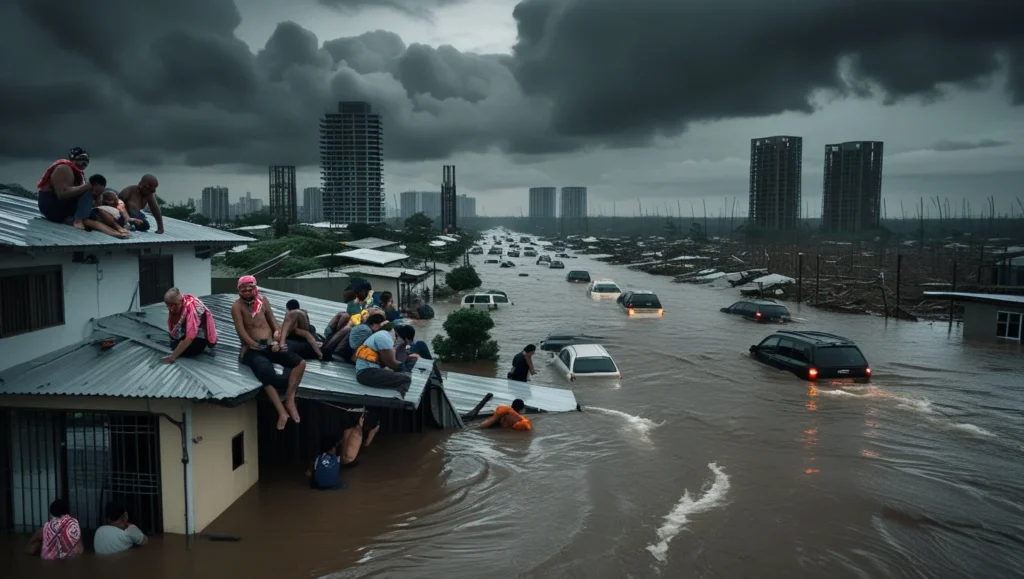
Key Insights:
- Climate-related disasters cost urban economies billions annually.
- Sustainable urban planning is crucial to mitigate risks, yet most policies focus on short-term fixes.
- Heatwaves in dense urban areas have increased by over 30% in the past two decades due to poor planning.
6. Loss of Green Spaces and Biodiversity
The continuous growth of cities results in the loss of parks, forests, and other green areas. This not only affects biodiversity but also contributes to rising temperatures and poor air quality.

Key Insights:
- The urban heat island effect is intensified by decreasing tree cover.
- Lack of green spaces reduces mental and physical well-being for city dwellers.
- Urban expansion has led to the destruction of wetlands and mangroves, increasing flood risks.
7. Public Health Concerns
Densely populated areas are breeding grounds for diseases, from respiratory issues due to pollution to increased spread of infectious diseases. Stress and sedentary lifestyles further contribute to poor health outcomes.
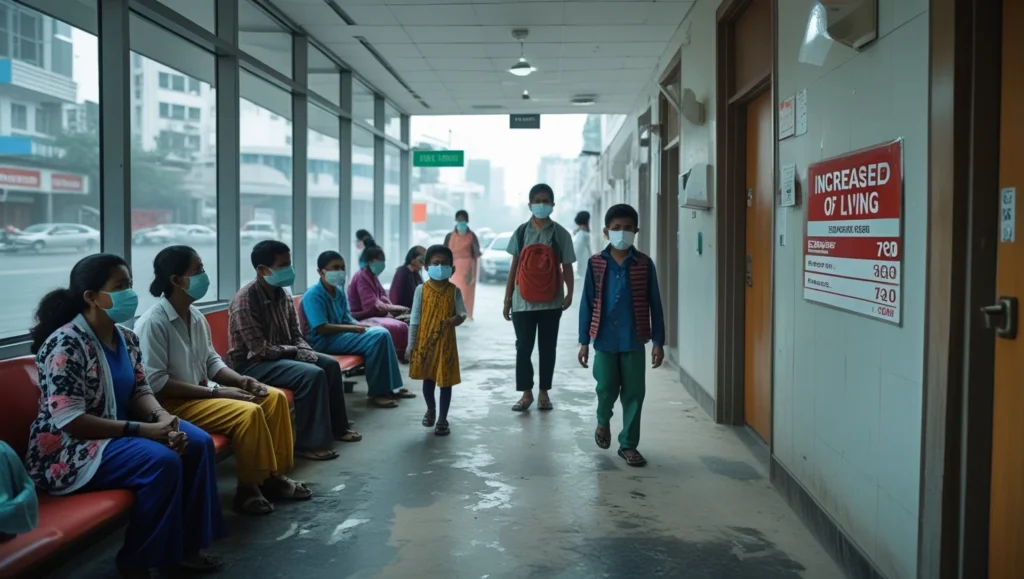
Key Insights:
- Air pollution in cities is linked to higher rates of asthma and cardiovascular diseases.
- Mental health issues like anxiety and depression are rising in urban environments.
- Waterborne diseases such as cholera and dysentery are becoming more common due to poor sanitation in expanding cities.
8. Increased Cost of Living
As cities expand, the cost of housing, food, and essential services rises, making it difficult for middle and lower-income groups to afford a decent standard of living.
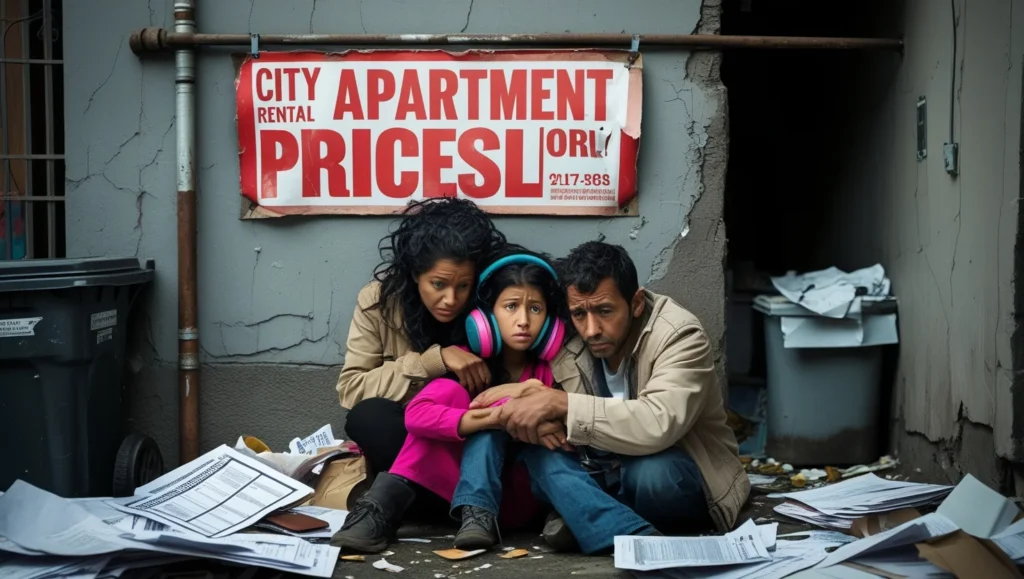
Key Insights:
- The average rent in urban centers has increased significantly over the past decade.
- Gentrification pushes low-income residents further away from city centers.
- Higher transportation costs impact workers who commute long distances due to housing affordability issues.
9. Water Scarcity and Sanitation Issues
Urban expansion puts immense pressure on water resources. Many cities struggle with depleting groundwater levels, inefficient distribution systems, and poor sanitation facilities.
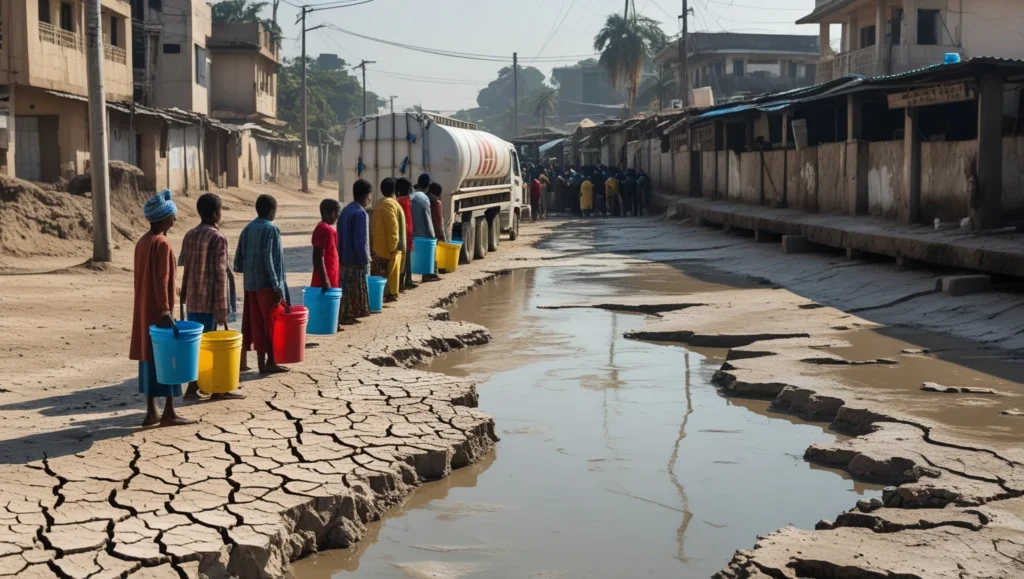
Key Insights:
- Many Indian cities face severe water shortages, affecting daily life and hygiene.
- Poor sanitation leads to health hazards and waterborne diseases.
- The over-extraction of water for construction and industries is worsening water crises in developing urban zones.
10. Waste Management Crisis
With increasing population density, waste generation skyrockets, often overwhelming municipal waste management systems. Unregulated disposal leads to environmental hazards and public health risks.
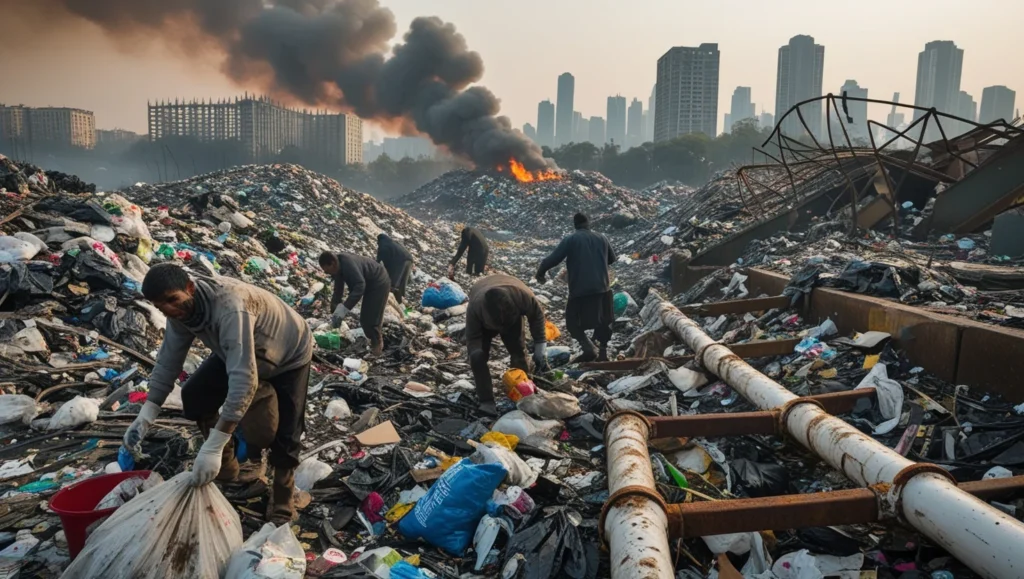
Key Insights:
- Landfills are overflowing, contributing to soil and water contamination.
- Recycling and waste segregation remain underdeveloped in many urban centers.
- Plastic waste is increasingly found in urban water bodies, disrupting ecosystems and water supply.
The Path Forward: Rethinking Urban Development
To create sustainable, livable cities, a shift in mindset is necessary. Instead of solely focusing on expansion, policymakers and urban planners must prioritize efficiency, sustainability, and quality of life. Key steps include:
- Implementing existing urban solutions instead of just discussing them.
- Encouraging compact city planning to reduce urban sprawl.
- Promoting green infrastructure like vertical gardens and renewable energy sources.
- Adopting sustainable lifestyles, emphasizing resource conservation and minimalism.
Urbanization is inevitable, but without responsible planning, cities risk becoming uninhabitable. By fostering an approach centered on balance, resilience, and inclusivity, we can ensure that urban expansion does not come at the cost of our environment or future generations.


